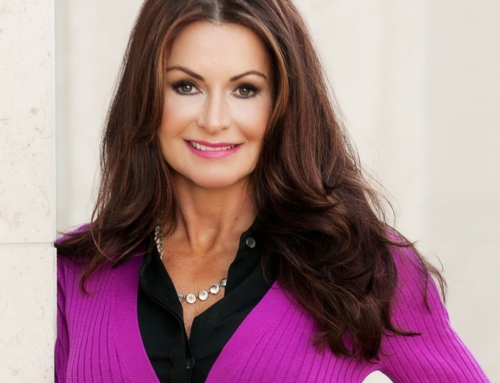Michael Steinmetz is the CEO and co-founder of Flow Kana, California’s largest seller of sun-grown cannabis. Working with more than 200 independent craft family farms, Steinmetz aims to transform cannabis into the world’s first fully sustainable agricultural product, thus ushering in a new era of farming, rooted in environmental stewardship, transparency, heritage, and shared equity. Originally from Caracas, Venezuela, Steinmetz and his wife, filmmaker and environmental activist Flavia Cassani, founded Flow Kana after touring Northern California’s famed Emerald Triangle in 2015. The Emerald Triangle is home to more than 53,000 independent, small-scale farmers, many of whom have lived off-grid for generations, practicing sustainable and regenerative farming methods that feed and cool the planet, while supplying organic fruits and vegetables to their communities. Flow Kana was born to help these farmers reach scale, while preserving their culture and bringing conscious consumers an unparalleled, premium sun-grown product. Over the past four years, Steinmetz has grown Flow Kana to become Mendocino’s second largest employer, and California’s number one selling flower brand. Inspired by the Sunkist model — which handles the processing, distribution, and packaging of citrus fruits but does not grow a single orange — Steinmetz sees his company as part of a new wave of ‘regenerative capitalism’ that keeps the land rich and the local economy thriving. In February 2019, Flow Kana secured a record $125M in funding — the largest raise of a U.S. privately-held cannabis company to date. Steinmetz calls the cash infusion ‘rocket fuel’ for the goal of creating an audacious infrastructure that empowers small-scale food and cannabis farmers to compete nationally.
Thank you so much for doing this with us! Can you share with us the story about what brought you to this specific career path?
I was born and raised in Caracas, Venezuela and growing up, my mother used cannabis for medical purposes, to which I attribute the start of my longtime passion and advocacy for the plant. I attended college in the United States, worked briefly in investment banking, and returned home to start my first business in food distribution. When the adult use movement started to make waves in California, I realized that legalization was actually going to happen in our lifetime, and I could really feel the potential. So, my wife and I sold our business in 2012, and relocated to the Bay Area to pursue this dream. Shortly thereafter, I started volunteering at a medical cannabis dispensary to learn cannabis commerce from the inside out, and there, I met a flower broker who offered to take my wife and I to the Emerald Triangle to see a few of his client’s farms first-hand.
I had always known about this legendary region, but had never visited, and that trip completely changed our lives. For the first time since my childhood, I saw cannabis plants in their rightful place, under the sun and in the soil, growing harmoniously alongside other fruits, vegetables, and herbs. One of the farms we toured was HappyDay Farms run by Casey and Amber O’Neill. They invited us to join them for dinner, and over a homemade meal of braised pork shoulder and garden-sourced vegetables, they planted a seed in my mind. They shared a vision for a future of regenerative cannabis farming, regenerative food farming, and the potential for cannabis to be a small farm subsidy and empower farmers to go back to the land and grow a small amount of cannabis alongside a whole garden of vegetables. I then pondered for months on end about how this plant, and the Emerald Triangle’s 53,000 decentralized, fragmented farmers, could together provide a supply chain that would defy the dangerous paradigm of Big Ag. With this disruptive ecosystem and using the principles of regenerative capitalism — using business as a tool to create the kind of world we want to live in — we believed there was the potential for something very special and also very revolutionary. Together with my wife, Flavia Cassani, a die-hard environmental activist and economist, we jumped all in, and Flow Kana was born.
Today, Flow Kana is powered by over 200 family farmers that have dreams similar to Casey and Amber O’Neill’s. Our farmers practice cultivation methods that feed, cool, and nourish the planet, which is an absolutely critical point given that the practice of traditional big agriculture is the second largest contributor to our global climate crisis. We’re building an agricultural distribution model that proves independent small farms can succeed in the biggest global market through centralized services.
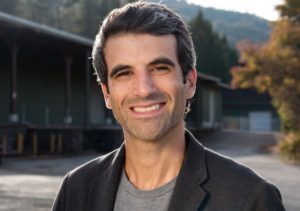
Can you share the most interesting story that happened to you since you began leading your company?
In this nascent phase of legalization, we are all building the plane as we fly on it, making every day exciting and interesting. But if I had to choose one of the most interesting and also most important moments in the history of Flow Kana, it would be when we stumbled on the Fetzer winery property – which we call Flow Cannabis Institute today, the centralized processing center in the heart of Mendocino county and also my home.
We were lucky to have this off-market property cross our path; a property that gave birth to the third largest winery in the US during their heyday (Fetzer Wines), was just sitting dormant and abandoned, waiting for the next owner to continue its legacy. The heart is a 200,000 square foot area that sits tucked away in the beautiful hillsides of Mendocino County on 300 acres of lush beautiful land, with ponds, creeks, vineyards, fruit orchards and more. It has become our home and the birthplace of the largest centralized processing facility in the world.
I still remember the day we first walked the grounds. It was a rainy winter day — walking in the mud, and through these completely abandoned, dilapidated buildings that seemed to have no future. However, there was something captivating about the whole experience, and there was a palpable energy in the air that made it feel like there was no other choice but to find a way to buy and rebuild this magical place. While infinitely bigger than what we needed at the time, this property represented the physical manifestation of the dream five years out – and it had to be ours. At the time, in late 2016, we had raised the same amount of money for Flow Kana over the past two and a half years that was required to be raised in 60 days to close on the property.
Together with my co-founders and inspiring leadership team, we took a step into the unknown and walked boldly down the path of fundraising, and were lucky that 60 days later the step appeared and we could continue to walk on the journey. That day when we closed was truly special, and it set us on a path and highlighted the huge responsibility we live up to. It was certainly an interesting and important moment.
Can you share a story about the funniest mistake you made when you were first starting? Can you tell us what lesson you learned from that?
Today, many years after launch, it’s funny to see how our original business model, that was met with a lot of resistance in the beginning, has now proven to be the model the industry operates in. When we started, we built a brand by shining the light on the lives of the amazing farmers that live in the Emerald Triangle. We built a site, created beautiful packaging and a brand; yet when we first approached the dispensaries, they all rejected it. This was pre the “brandification” of the industry, and every dispensary we went to with our beautiful jars, said to us, “We buy our weed by the pound, put it in our own ziplock bags, and have no use for these pretty jars you are selling.” Low and behold, four years later, it’s a requisite of regulations to have all products packaged, labeled, uniformly weighed and clearly branded from the distributor- no more turkey bags.
I remember visiting every single licensed dispensary in San Francisco with my wife, and going one by one down the approved list, that at the time was published by DPH. I believe we got 23 rejections, and after that we realized we had to change strategies. Committed to the vision of building the first sun-grown cannabis brand, and likely the first flower brand period, we decided to get all the necessary permits, launch a delivery service and go straight to the customer. This allowed us to bypass the dispensaries that refused to take our products, and connect directly with the consumers and validate the idea that we knew in our hearts to be right, which was that people cared about purchasing cannabis that they could recognize by brand, learning where their cannabis comes from, and most importantly, who grew it and how.
It was our commitment to the vision, despite costs and obstacles, that allowed us to prevail. The learning lesson was that the arc of business is not a linear one; oftentimes to go from A to B, you have to find creative ways that seem less obvious. It’s like the old expression, when you’re out sailing and the winds start pointing in a different direction, you don’t adjust your goal, you just have to adjust your sails. I think it’s that commitment to a vision, but the flexibility to be nimble and adaptive to market signals, that are critical for any entrepreneur, in any journey, of any kind.
Are you working on any exciting projects now?
Absolutely. Every farmer with whom we work has a fascinating story; some are second and third generation home-steaders who live off-grid, and whose farms are literally sequestering carbon from the atmosphere to help mitigate climate change; others left posh city lives behind as hairdressers, elementary school teachers, even one who was a rock and roll drummer — for the opportunity to reconnect with the earth through cannabis. These stories are history unfolding before us in real time, and soon, people everywhere will have a chance to experience them through a video docu-series we are launching, “The Great Outdoor”, spearheaded by my wife and Flow Kana co-founder, Flavia Cassani. It intimately highlights the daily life, season by season, of four groups of cannabis farmers in the Emerald Triangle whose labor of love makes our sun-grown offerings possible. Most importantly, the series gives consumers a look at where their cannabis comes from while putting a face to the farmers who have risked everything to cultivate this plant in a way that gives back to both people and the environment.
None of us are able to achieve success without some help along the way. Is there a particular person who you are grateful towards who helped get you to where you are? Can you share a story?
It is unquestionable that starting a business and being a successful entrepreneur requires tremendous amounts of hard work and sacrifice; but it also requires a little luck. I feel like I won the lottery with the parents I had: the unbelievably knowledgeable and caring mother I had, the compassionate sister I grew up with, the schooling and academics that were afforded to me, and also with my beautiful wife I met along the way. There is a lot of what has made Flow Kana today, that I can humbly say was luck, and was due to a lot of help by many along the way.
If I had to choose one, it would have to be my wife and co-founder, Flavia. We’re married to each other and to Flow Kana, and both risked it all and moved with very little in our pockets to make this dream a reality. We’re both passionate and hands-on. We ground one another, and we’re both constantly striving to achieve a state of flow. Perhaps my favorite definition of Flow, is one by Deepak Chopra, that says that living a life in flow is living a life of ‘effortless spontaneity’. When you connect to your core, when you connect to your purpose, to your passion, it feels as if life happens around you in a way that feels effortless. The right opportunities, right connections, and right relationships unfold in front of you almost effortlessly.
So I am grateful for the help and support of my life partner, Flavia — fortunate to work alongside someone so passionate and committed to do right by this plant, by this community of people, by the planet, and by one another. Day by day, we’re making it happen with the help of so many others. Today the Flow Kana team is almost 300 strong across the state and without every single one of those passionate, committed and amazing people — none of this would be possible. I am lucky and grateful for all that life has given us and for the path that has manifested.

This industry is young dynamic and creative. Do you use any clever and innovative marketing strategies that you think large legacy companies should consider adopting?
People don’t often remember what you say, they remember how you made them feel. I believe consumers at large, don’t buy what you do, they buy why you do it, it’s the clarity of a company’s why that makes them connect with consumers. At Flow Kana, our marketing and branding is 100% value based, and communicates our WHY. It’s not about us, it’s about the farmers who have spent their lives in the shadows, and we’re so honored to be able to cast a light on them and their work. We live in a world where consumers want, and demand, corporate transparency. They want to know whether the people throughout the supply chain are being paid a fair wage. They want to know a product’s carbon footprint, and they want to see who produced it. They want to feel good about what they buy and which logos they wear on their hats and shirts. At Flow Kana, we’re giving the world access to our supply chain through our social marketing channels and advertising, as well as new series of episodic short documentary films we just launched called “The Great Outdoor.”
Many small cannabis farmers in California’s Emerald Triangle dreamed of the day when they would no longer need to hide in the shadows with the specter of law enforcement flying over their heads. Legalization and ability to operate their farms out in the open, living an independent and sustainable life off the land — often felt out of reach, yet at the same time just around the corner. As the movement for decriminalization and legalization advanced, it became inevitable that the dream would one day come to fruition. And now it has. Flow Kana is inviting viewers to bear witness and celebrate this incredible group of individuals.
Can you share 3 things that most excite you about the Cannabis industry? Can you share 3 things that most concern you?
I’m most excited by: the opportunity we have to get this industry right! To bring forth a massive industry that has the potential to be a catalyst for so much change in the world. This industry intersects so many verticals of our life; from agriculture, medicine and science to new building materials, biofuels, energy and so much more! I often imagine how different our world would be today if the American automobile industry began with Tesla. Finally, I’m excited about the massively historic cultural paradigm shift and awakening that’s currently underway in regards to acceptance, social justice, de-stigmatization, and mindful integration of cannabis into the mainstream.
I’m most concerned by: regulations that displace small operators and are affecting most those that built this industry. I’m also concerned, as is our entire community, with the growing threat of Big Ag. Industrial agriculture is killing our planet and fueling our global climate crisis. Supporting craft cannabis farmers, who are growing utilizing regenerative methods, is a step towards building a better industry and a better future for us all.
Can you share your “5 Things I Wish Someone Told Me Before I Started Leading a Cannabis Business”? Please share a story or example for each.
- Stay nimble, stay adaptive. With the swing of a pen and a signature on a page, regulations can change and the whole industry can shift. It’s imperative to remain flexible for the changes ahead.
- Don’t ignore the forces of the illicit market. Unlike any other industry or business, there is a massive, unspoken, underground competitor that you can’t ignore. This scenario has never existed in history other than the times of alcohol prohibition, and a typical business school analysis won’t give you the full scope of its impact.
- The first years of new regulation are exceptionally complicated, burdensome and hard to predict. Have a ‘north’ of where you are headed, but guide your business more with a compass than a roadmap. Expect things to unfold in an entirely different way than you might expect.
- Local policy is as important as state regulations. Meet your legislators and include them in your plans and strategies — they are key stakeholders in your process.
- Remember cannabis is not a new industry, it’s not starting, conversely, it’s been established for a while — much longer than some of the entrepreneurs leading companies. Be respectful of the culture and of the history, the sacrifice of legacy individuals and activists, and all that has happened to get us here. Their hard work has afforded the opportunity for so many to participate in this industry — and remember that before it was ‘an industry’, it was always a community.
What advice would you give to other CEOs or founders to help their employees to thrive?
Perhaps the best advice I can give, is borrowing a concept from Steven Covey’s book, 7 Habits of Highly Effective People, that says, “treat your employees like volunteers.” You can always pay for someone’s back, sweat and tears; but if you want to get the best out of your employees, to get their heart, soul, and passion — you can’t pay for that, you have to get them to volunteer it. Be there for your people, inside and outside of work; if you go out of your way for them, they will go out of their way for you.
You are a person of great influence. If you could inspire a movement that would bring the most amount of good to the most amount of people, what would that be? You never know what your idea can trigger. 🙂
Be kind, put your community first and always act as if someone was watching. Focus on building value. The market pays you for your value, not for your time. If you focus on creating value, you will then make money. If you focus on making money, you won’t add value, and ultimately not money.
What is the best way our readers can follow you on social media?
You can stay up to date on all things Flow Kana by liking us on Facebook, and following us on LinkedIn and Instagram.
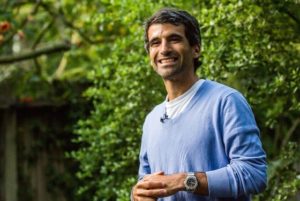
This was very inspiring. Thank you so much for joining us!

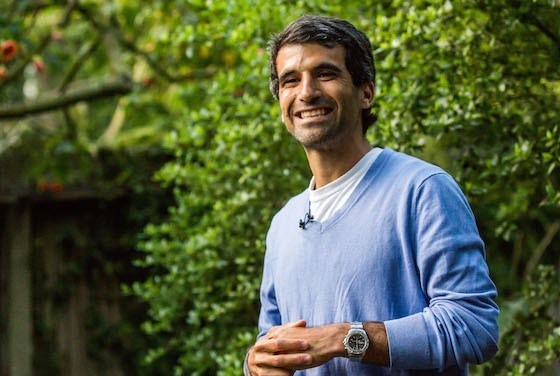
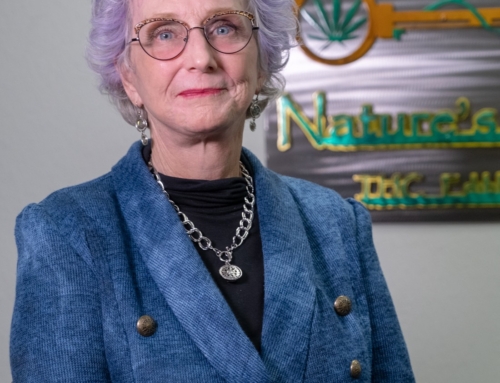
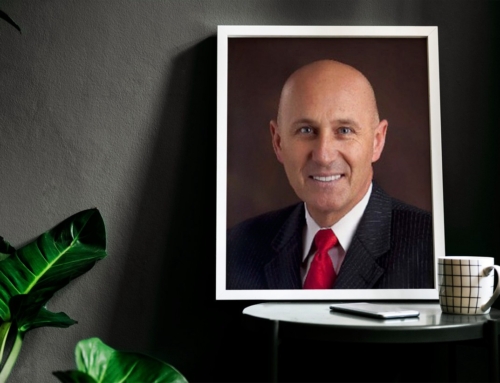
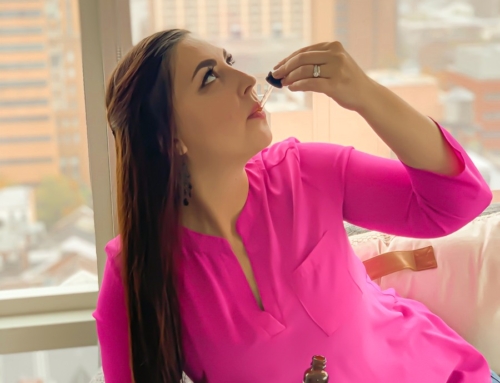

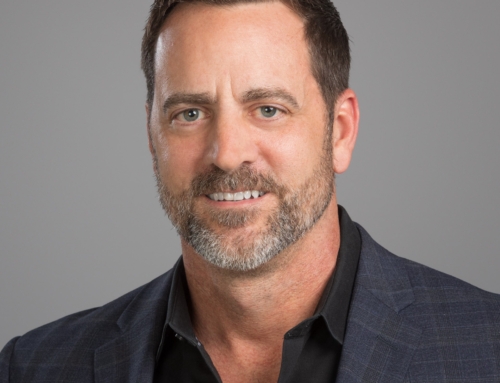
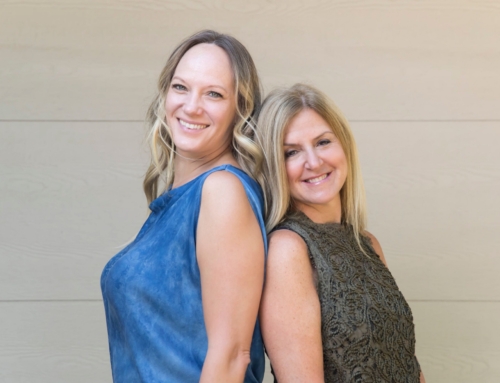
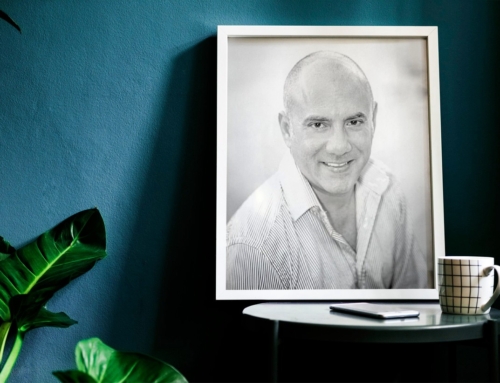
![“The potential to help people [in this industry] is enormous, but there’s still so much to learn.” – Ramon Alarcon, Witi](https://lakesideremedy.com/wp-content/uploads/2020/12/1thj5ekUyxQ69iLz1JJyODg-scaled-e1607882756286-500x383.jpeg)
